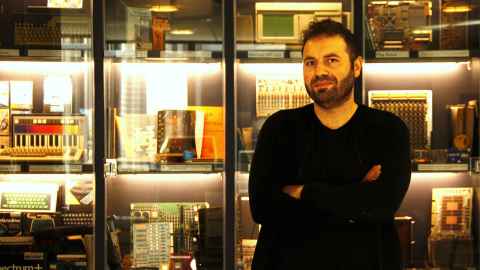Neşet Özkan TAN
Neşet Özkan TAN completed his PhD in Computer Science at the University of Auckland in 2025, specialising in Natural Language Processing (NLP) and Scientific Document Understanding.

Since graduating, he has held a Research Fellowship within the School of Computer Science, leading projects in NLP and developing AI technologies to combat scientific misinformation.
What initially drew you to the field?
My background is in mathematics and artificial intelligence, with a strong emphasis on the practical applications of natural language processing. Early on, my work in functional analysis, the study of abstract spaces and the transformations within them, helped me appreciate the structure and logic underlying complex deep learning systems.
A pivotal moment came in 2017, when I read the now-seminal paper Attention Is All You Need. It completely changed my trajectory, motivating me to dive deeper into NLP and its applied dimensions. Since then, my work has focused on understanding the foundations of language models while developing practical tools that address real-world challenges, particularly in the context of scientific research and communication.
How did your time at the University of Auckland prepare you for your career?
The University of Auckland offered an exceptional environment for interdisciplinary exploration, which was instrumental in shaping my research direction. I collaborated with world-leading AI institutes and worked across diverse fields, including computational biology and psychology, applying deep learning in novel contexts.
These experiences taught me how to build technically robust, ethically grounded systems that bridge theory and practice, capable of making a broad and meaningful impact beyond computer science itself.
What is your current position?
I am currently a Research Fellow conducting research at the leading edge of Natural Language Processing (NLP), focusing on how humans interact with and understand scientific knowledge. My work aims to enhance transparency, counter misinformation, and make complex research more accessible. This research has produced innovative outcomes that have attracted the attention of UniServices for potential real-world applications. I also supervise Masters and PhD students working on advanced topics in NLP and Artificial Intelligence.
Beyond this, I contribute to both international and local research initiatives – from using deep learning to predict gout disease risk through genomic data, to exploring how human attention patterns compare with those of large language models.
Is there a project you’re particularly proud of?
One project I’m especially proud of is SciTrue, a transparent scientific claim verification system that I led as the primary developer. SciTrue empowers users to evaluate scientific claims through verifiable, source-grounded explanations, addressing key shortcomings in existing AI tools such as hallucinated citations and lack of transparency.
Now evolving into a commercial initiative, scitrue.org aims to establish a trustworthy, open framework for scientific claim verification. It is tailored for science, journalism, and policy domains, where credibility and auditability truly matter.
What’s next for you?
In the coming years, I aim to push the boundaries of how artificial intelligence can transform the way we make scientific discoveries. My immediate focus is on advancing tools such as SciTrue, which promotes transparency and accountability in scientific communication by enabling automated claim verification – a step toward making evidence-based evaluation a standard in both science and policy.
Looking ahead, I plan to strengthen interdisciplinary collaborations that connect AI with industry, helping to address some of the world’s most pressing challenges.
My long-term vision is to help create an AI-driven future where machines not only process data, but also help humans think more clearly, discover more boldly, and make decisions grounded in truth.
In parallel, I am in the process of launching a company dedicated to helping organisations harness the power of AI to enhance decision-making, streamline operations, and unlock new opportunities for innovation.
What advice would you give to someone considering this field?
I’ve learned that staying curious and open-minded is essential. Every challenge is really an opportunity to grow, even when it doesn’t feel that way at first. Discipline and persistence matter far more than quick wins – real progress comes from steady effort over time.
I always encourage students to ask questions and seek mentorship because that’s where genuine learning happens. Balancing their hard work with self care is just as important. Staying connected to what truly inspires you is what keeps the journey meaningful.
Finally, tell us something about yourself we can’t Google.
I’m a multi-instrumentalist who loves jamming with local bands, and a father of two toddlers. My kids’ endless curiosity inspires me every day and offers profound insights into human behaviour – including my own. They continually remind me why curiosity, creativity, and wonder lie at the heart of both parenting and scientific exploration.